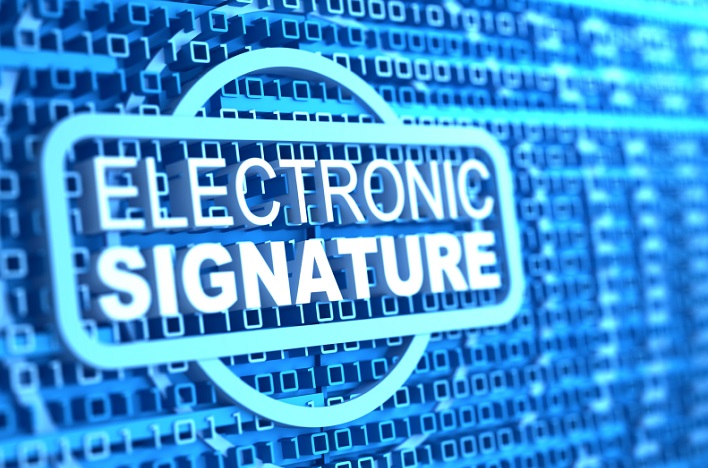Centuries ago, deals were certified with a handshake. More recently, deals were closed with pen and paper. And even more recently, agreements have moved into the digital realm, where you can use electronic signature platforms such as DocuSign, HelloSign and others.
Below are three benefits of using eSignatures and useful information on the legality of contracts signed electronically.
Save Time and Money
Processing contracts online is faster than using paper and snail mail and even faster than emails and attachments. For example, a sales force out in the field can fill out a contract template while in a client’s office and submit the same for immediate approval from a manager back at headquarters.
The manager can modify or approve the contract, sign the document online and immediately send it back to the client for the client’s eSignature. Once fully executed, the contract is saved in the cloud and emailed to the two parties.
Reduce Paper Clutter
Documents that have been eSigned can live in the cloud or on your private server, which means you no longer have to maintain file cabinets or physical libraries. Often, this can be the first step to going paperless or at least to “less paper,” and you can help save the environment too!
Improve Customer Experience
Customers and clients love eSignatures because they can move from your sales pipeline to receiving your services even faster. Plus, they can sign your contract on a computer, tablet or even their smartphone, meaning less hassle and less paper for them. And further, both you and your customer will have access to the fully executed contract, which is important if a dispute later arises.
Legality of Electronic Signatures
Naturally, you should be asking the question, “are eSignatures valid?” And the answer is usually yes. The Electronic Signatures in Global and National Commerce Act (ESIGN), a federal law, and the Uniform Electronic Transactions Act (UETA), which most states have adopted, make it clear that eSignatures have the same legal effect as traditional paper counterparts in most situations.
To be valid, electronic contracts must meet certain tests including:
- The parties must have had the intent to sign the contract.
- In consumer settings, consumers must give their consent to sign the contract electronically and have been informed of their right to have the contract provided in a nonelectronic form.
- The contract must be stored in such a way that all parties can access the contract and reproduce it.
- It must be possible to accurately attribute the eSignature to the actual party.
Fortunately, online signature platforms help to ensure these tests are met. They obtain the required consents for electronic signatures, and they capture and save information about the signing parties, such as how often they viewed the contract, when they signed it, their geographic location when they signed it, the type of device or computer used, and more.
Of course, there may be some exceptions as to when eSignatures are not valid, and for that reason, you should always speak to an attorney before taking your contracts online.
This article is very general in nature and does not constitute legal advice. Readers with legal questions should consult with an attorney prior to making any legal decisions.


